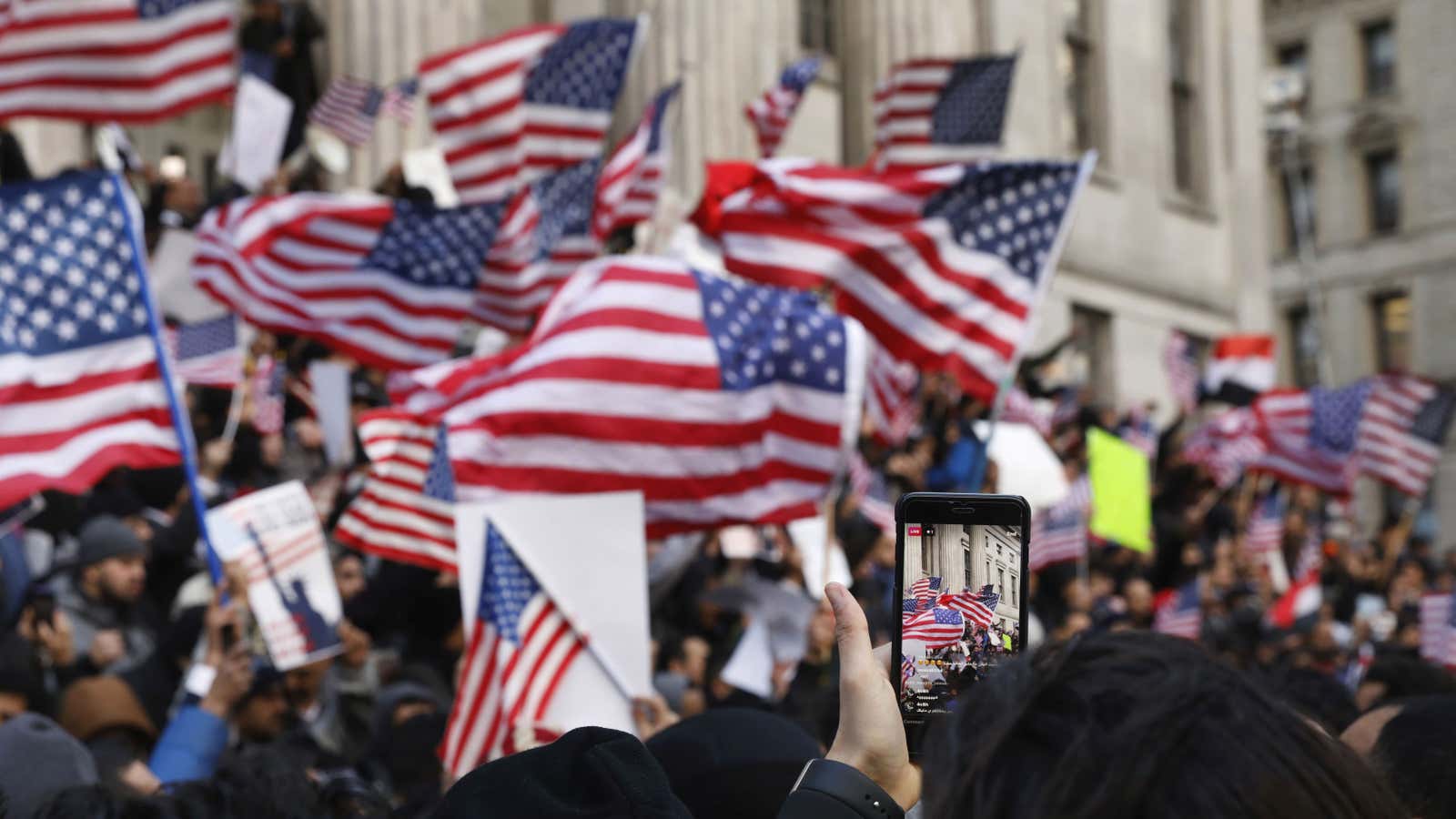H-1B woes in the US are racking up big bills for India’s IT majors.
With the Donald Trump administration tightening the noose around visa clearances, Indian outsourcing companies are being forced to recruit local talent in the US. But that will come at a massive cost. “…we foresee a rise in local hiring in (the) US, payment of higher wages, which will take a hit on the margins of IT majors,” a recent report by credit ratings firm CARE said.
In 2018, Indians accounted for three-quarters of all H-1B visas, which lets foreign workers live and work in the US for up to six years. Since Trump came to power in January 2017, there’s been a push to redefine the criteria for “specialty occupations that qualify for the H-1B, the paperwork and scrutiny for the process have increased, and there have also been targeted site visits to crack down on visa abuse, among other things.
Why hire American?
Already America’s tech industry is plagued by a massive skills crunch. In order to combat further labour shortages caused by fewer workers from abroad being allowed in, Indian IT firms have started reining back their visa dependency and turning to local talent instead. For instance, Wipro began ramping up hiring in the US back in 2009, bringing campus recruits onboard in Atlanta, Georgia and Troy, Michigan. Tata Consultancy Services followed suit in 2013 and it is one of the biggest job-creators in the US today. Infosys has hired over 7,000 Americans in the last 18 months.
In any case, chances of Indian techies working in the US are even slimmer now with the US department of homeland security (DHS) announcing that the H-1B lottery selection process will be reversed to favour master’s or advanced degree holders from US universities. (Currently, 20,000 advanced degree students are allotted visas first and then the rejects are added to the common pool across education levels, where another 65,000 visas are available.)
“This move is expected to reduce the chance of Indian software engineers getting US visas,” CARE noted. After all, Indian tech firms have predominantly hired workers with bachelor’s degrees in entry-level positions, most of whom have degrees from Indian universities.
Focusing efforts locally has also become doubly important as H-1B processing timelines lengthen. Earlier, companies could pay a $1,225 fee to expedite the H-1B process via the 15-day premium processing route, cutting short the usual six month wait. But the US citizenship and immigration services (USCIS) has put this feature on hold until February 2019.
“Such initiative by the US government is expected to create cost pressures on IT services firms, which are H-1B visa dependent, due to increase in compliance and lobbying costs,” CARE’s report states. “Movement of low-cost labour from India is expected to gradually reduce over a period of time as local hiring in (the) US sees a rise.”




